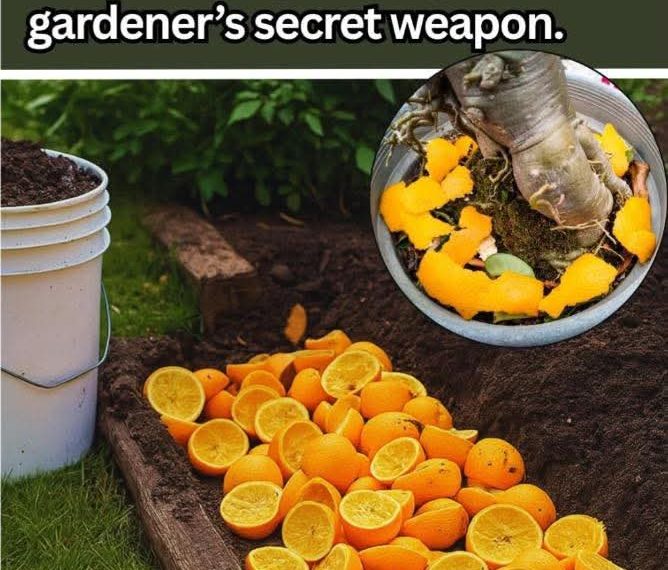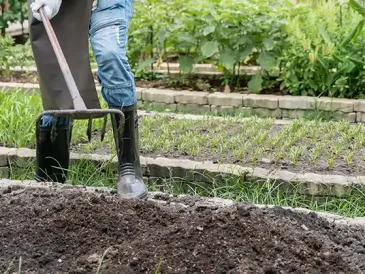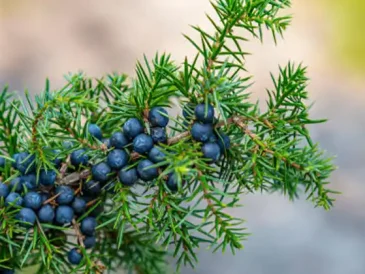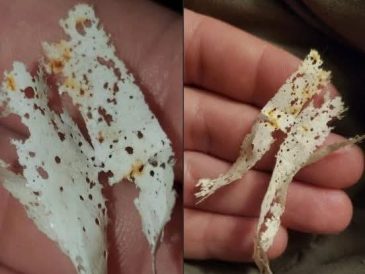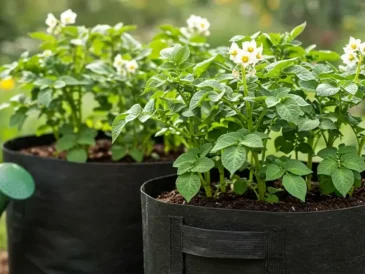15 Genius Ways to Use Citrus Peels in the Garden 🌱🍋
Citrus fruits like oranges, lemons, limes, and grapefruits are kitchen staples—but the peels you normally toss can become your garden’s best-kept secret. From repelling pests to enriching your soil, citrus peels are packed with natural oils, minerals, and compounds that benefit your plants in powerful, eco-friendly ways.
Instead of trashing those fragrant rinds, learn how to repurpose them in these 15 creative and practical gardening applications.
Why Citrus Peels Are So Useful in the Garden
- ✅ High in nitrogen, phosphorus, potassium, and calcium
- ✅ Contain natural insect-repelling essential oils like limonene
- ✅ Naturally acidic – helpful for soil pH balance
- ✅ Compost-friendly and biodegradable
- ✅ Have antifungal and antibacterial properties
These characteristics make citrus peels useful as fertilizers, pest repellents, mulches, seed starters, and more.
Top 15 Citrus Peel Uses in the Garden
1. Natural Pest Repellent 🐜
Limonene in citrus peels repels aphids, ants, whiteflies, mosquitoes, and flies. Simply scatter chopped peels around plant bases or rub the inner peel directly on stems and leaves. Replace peels every few days.
2. Compost Booster ♻️
Add chopped citrus peels to compost for a nitrogen-rich “green” ingredient. Balance with browns (like dried leaves), and don’t overload—too much can slow decomposition.
3. Soil pH Adjuster for Acid-Loving Plants
Dry and grind citrus peels into powder and sprinkle over the soil of acid-lovers like blueberries or azaleas monthly to help lower pH levels naturally.
4. Homemade Citrus Peel Fertilizer 🌾
Grind dried peels into powder and mix with equal parts crushed eggshells or coffee grounds. Sprinkle around flowering or fruiting plants for a slow-release organic fertilizer.
5. Keep Cats Out of the Garden 🐱🚫
Cats dislike citrus scents. Place fresh peels around flowerbeds or seedling trays to discourage digging or unwanted visits.
6. Ant Repellent for Garden and Greenhouse 🐜
Scatter orange or lemon peels along known ant trails. Or, boil peels to create a citrus spray for greenhouse edges and garden beds.
7. Slug and Snail Trap 🐌
Use halved orange or grapefruit rinds face-down in the garden. Slugs hide inside overnight—remove and dispose in the morning.
8. Start Seeds in Citrus Halves 🌱
Turn scooped-out citrus halves into biodegradable seed starters. Poke a hole in the bottom, fill with soil, and sow seeds. Plant the whole thing when seedlings mature.
9. Make a Citrus Peel Insect Spray 🧪
Boil peels from 2–3 fruits in 2 cups of water for 20 minutes. Cool, strain, and mix with 1 tsp dish soap. Spray onto plants to deter aphids and mites.
10. DIY Citrus Peel Mulch 🍊
Dry and chop citrus peels to create a mulch that retains moisture, repels pests, and adds nutrients to the soil. Apply thinly to avoid mold growth.
11. Add to Worm Bins (in Moderation) 🪱
Citrus adds diversity to vermicompost diets. Use small amounts, mixing with paper or dry leaves to prevent acidity spikes. Avoid spicy limes or spoiled peels.
12. DIY Citrus Enzyme Cleaner 🧼
Ferment citrus peels, brown sugar, and water (10:1:3 ratio) for 2–3 weeks. Strain and use the liquid to clean gardening tools without chemicals.
13. Attract Pollinators with Fermented Citrus
Place citrus peel saucers filled with sugar water near flowering plants. Bees and butterflies love the sweet smell and will help pollinate nearby crops.
14. Enrich Container Plants & Raised Beds 🪴
Mix dried citrus powder into potting soil or layer chopped peels under soil before planting to provide nutrients and gradual moisture retention.
15. Garden Air Freshener 🌼
Scatter peels on walkways or patios. As they warm, they mask unpleasant smells like compost or manure with a refreshing citrus aroma. Or use dried peel sachets for tool sheds!
How to Store and Prepare Citrus Peels
- Dry: Lay peels on trays in sun or a 200°F oven until brittle. Store in airtight containers.
- Grind: Use a blender or spice grinder to create a powder for fertilizer or pH adjustment.
- Freeze: Store fresh peels in freezer-safe containers for later composting or use in sprays and traps.
Citrus Peels to Avoid ⚠️
- ❌ Waxed, store-bought peels – wash thoroughly or use organic
- ❌ Moldy or spoiled peels – they may spread disease
- ❌ Excess in worm bins – too much acidity harms worms
Nutrition and Garden Benefits of Citrus Peels 🍊
| Component | Garden Benefit | Presence |
|---|---|---|
| Nitrogen | Promotes leafy green growth | High |
| Potassium | Boosts fruit and flower production | Moderate |
| Phosphorus | Encourages root development | Moderate |
| Calcium | Prevents blossom-end rot in tomatoes | Low to Moderate |
| Limonene Oil | Repels insects naturally | High |
Frequently Asked Questions (FAQs)
- Can citrus peels harm my compost?
Not if used in moderation. Avoid large quantities, and always mix them well with browns like dry leaves or cardboard. - Is it okay to use citrus peels in worm bins?
Yes, but sparingly. Too many can raise the acidity and harm your worms. - Do citrus peels attract or repel insects?
They repel most pests like ants and aphids but can attract pollinators when fermented with sugar. - Which plants benefit most from citrus peels?
Acid-loving plants such as blueberries, hydrangeas, azaleas, tomatoes, and most flowering annuals. - How long do dried citrus peels last?
Up to a year if stored in airtight jars in a cool, dry place. - What’s the best way to dry citrus peels?
Sun-drying on trays or baking at 200°F until crisp—ensure full dryness to prevent mold. - Can citrus peels replace commercial fertilizer?
Not entirely, but they’re an excellent supplement for organic gardening and soil health. - Are citrus peel sprays safe for edible crops?
Yes—use food-safe dish soap and rinse edible parts before consuming. - What pests do citrus peels repel?
Aphids, mosquitoes, ants, flies, whiteflies, slugs, and some beetles. - How often should I replace citrus peels in the garden?
Every 3–5 days or after heavy rainfall for maximum freshness and effectiveness.
By making the most of citrus peels, you turn everyday waste into a powerhouse of natural gardening solutions. Whether you’re repelling pests, nourishing the soil, or starting seeds sustainably, these bright, zesty skins deserve a permanent place in your gardening routine. 🍋🌱

